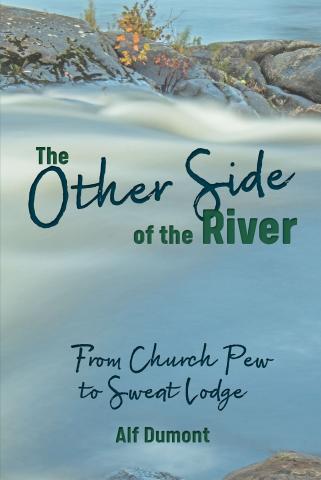
“As we share, we learn from the gifts that we have been given.”

“Dad and Mom said ‘I think we can do that.’ They brought together First Nations understanding and non-First Nations understanding. That’s how I came to the church,” Dumont recounts in a United in Learning webinar(opens in a new tab).
Dumont spent his life as a spiritual leader, serving the United Church as a minister while staying connected with his traditional Indigenous spirituality. His memoir The Other Side of the River: From Church Pew to Sweat Lodge(opens in a new tab) shares stories of how Dumont walks between the two worlds of Indigenous and settler, traditional spirituality and Christianity.
“Part of the struggle with me in life was to find out who I was as Anishinaabe and who I was as French, Irish, and English mix,” Dumont shares. With a foot in both sides of the river, Dumont’s words eloquently draw together spiritual threads.
“There are seven truths in some of the Anishinaabe teaching: love, courage, respect, humility, truth, wisdom, and honesty. But you can’t have one of those teachings or truths without having the other. So you can’t have respect without love. You can’t have truth without humility,” explains Dumont. “I took those underlying teachings and applied them to the four teachings on love: Love God. Love your neighbour. Love your enemy. Love yourself. You can’t have one teaching without the other. You can’t love God if you don’t truly love yourself. You cannot love your neighbour unless you truly love God.”
In an interview(opens in a new tab), Broadview magazine asked Dumont to weigh in on the future of reconciliation: “Part of the struggle has to do with learning to walk together again. It means being as open as we can,” he says. “You bring a gift that I don’t have; I bring a gift that you may not have. And as we share, we learn from the gifts that we have been given.”
Your gifts through Mission & Service help support the creation and publication of luminous, timely work like Dumont’s book as well as the webinar discussions and education events that follow. Through listening and learning, we take important steps forward on the journey toward reconciliation.